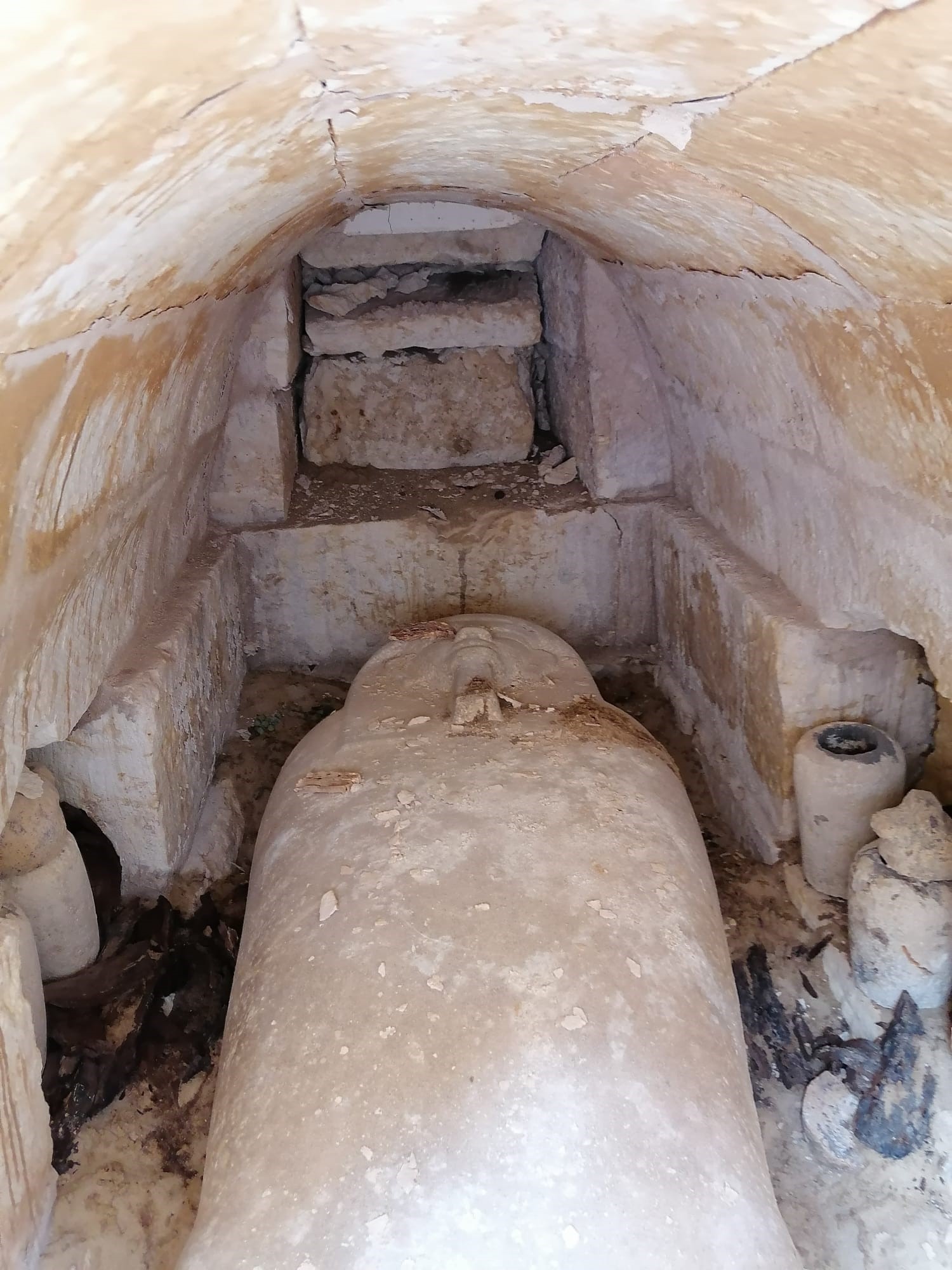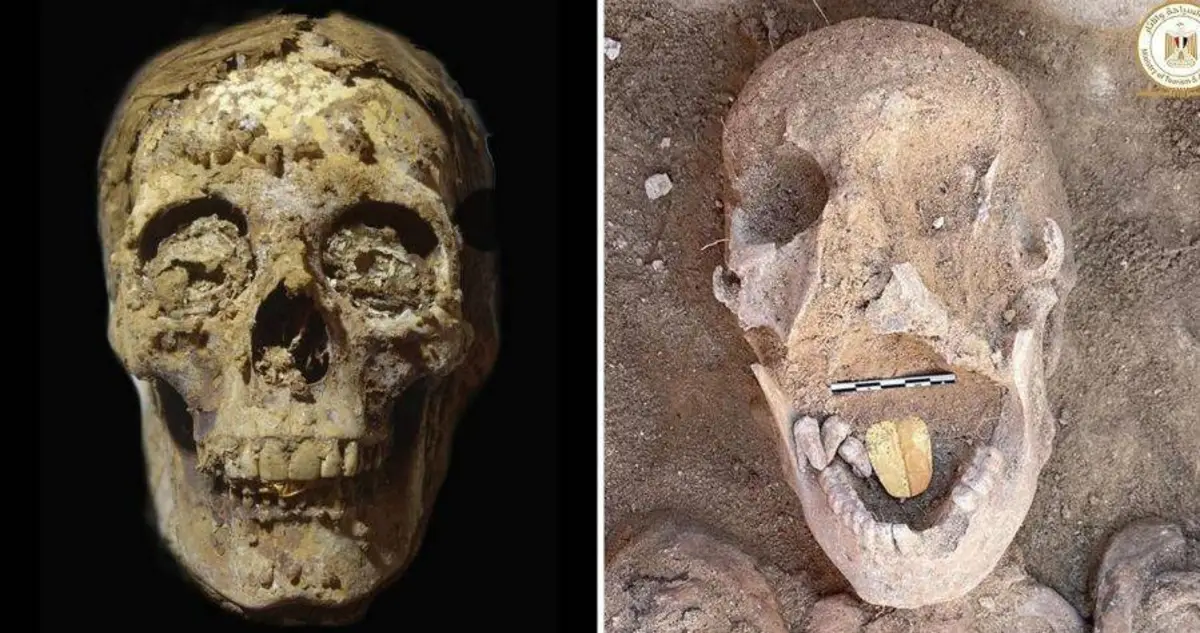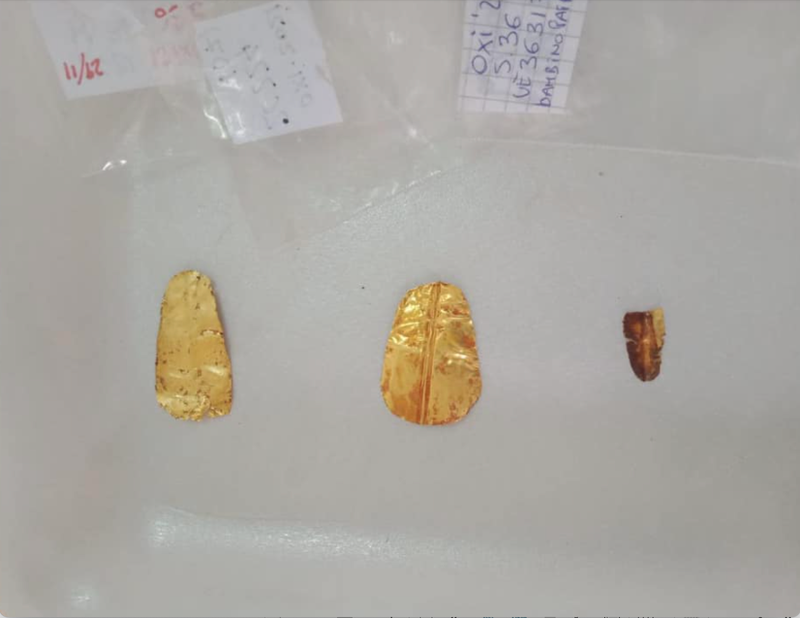In a remarkable archaeological find, researchers have discovered the remains of three ancient Egyptians – a man, woman, and child – with their tongues adorned in gold foil. This treasure trove, unearthed in two neighboring tombs near the ancient capital of Oxyrhynchus, is believed to have been intentionally placed to aid the deceased in communicating with the gods in the afterlife.
Rare Untouched Tomb Yields Valuable Clues

One of the tombs, which had been previously plundered by grave robbers, contained the remains of a woman and a 3-year-old child. The other tomb, however, remained untouched, providing researchers with a rare opportunity to study the burial practices of the 26th dynasty (664 B.C. to 525 B.C.), also known as the Saite period.
“This is very important, because it’s rare to find a tomb that is totally sealed,” said Esther Pons Mellado, co-director of the Archaeological Mission of Oxyrhynchus. The team, which is a collaboration between the Egyptian Ministry of Tourism and Antiquities and the University of Barcelona, made the discovery at the archaeological site of Oxyrhynchus, located about 100 miles south of Cairo.
Mummies Adorned with Gold Tongues

The man’s tomb, which was untouched, contained a mummy interred within a limestone sarcophagus with a man-shaped lid. Alongside the mummy, the tomb held four canopic jars designed to hold the deceased’s organs, as well as a wealth of amulets, including a scarab, green beads, and approximately 400 funerary figurines known as ushabti.
The presence of the gold-foil tongues is a significant finding, as it suggests a belief that the deceased would need the ability to speak in the afterlife. This practice has been observed in other ancient Egyptian burials, including the recent discovery of a 2,000-year-old mummy with a gold tongue, found at the Taposiris Magna archaeological site on Egypt’s Mediterranean coast.
Ongoing Excavations and Unanswered Questions

While the identities of the three individuals are still unknown, the archaeologists are hopeful that ongoing excavations will reveal more clues about their lives and the beliefs that shaped their burials. This remarkable discovery adds to the rich tapestry of ancient Egyptian history and provides further insight into the complex and intricate afterlife rituals that were so integral to their culture.
The discovery of these mummies with gold-foil tongues in sealed Egyptian tombs is a testament to the enduring fascination with ancient Egyptian culture and the mysteries that continue to unfold. As researchers delve deeper into this find, they hope to uncover more insights into the beliefs and practices that guided the deceased on their journeys to the afterlife. This remarkable discovery serves as a powerful reminder of the wealth of knowledge still waiting to be uncovered within the sands of Egypt, and the importance of preserving and studying these priceless artifacts of the past.